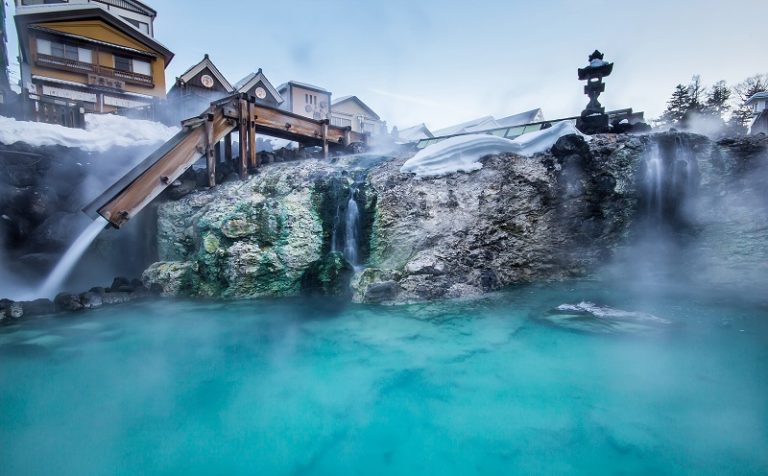Thermal springs (Japanese: 温泉 – onsen)

Thermal springs (Japanese: 温泉 – onsen) are an integral part of Japanese culture and rituals for caring for the body and soul. They are formed thanks to Japan’s rich volcanic activity. The country has over 3,000 onsens, each with its own unique water composition, temperature, and healing properties.
Key features of Japanese thermal springs:
• Mineral-rich water: contains sulfur, iron, sodium, calcium, and other elements beneficial for the skin, joints, and overall vitality.
• Health benefits: onsens help with skin conditions, improve circulation, relieve stress and fatigue.
• Purification ritual: before entering the communal bath, it’s customary to shower — a tradition that reflects Japanese values of cleanliness and respect for others.
Famous onsen regions:
• Beppu (Kyushu) – one of the most active and well-known hot spring resorts.
• Hakone – located near Tokyo, popular with both locals and tourists.
• Noboribetsu (Hokkaido) – renowned for its mineral-rich waters.
Cosmetics brand Menard, use thermal spring water in their formulas — in Beauness Line which features water from a special onsen known for its anti-inflammatory and skin-restoring properties.
